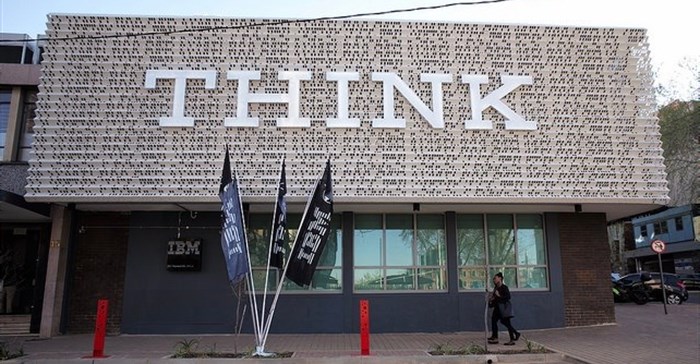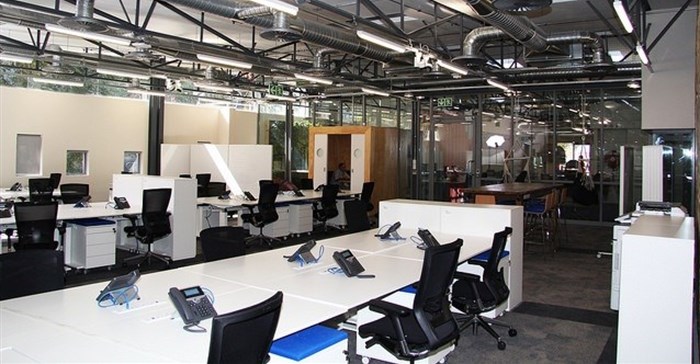






IBM's researchers in South Africa with backgrounds in machine learning, mathematics, computer science, robotics, genomics and computational biology, are exploring the use of cognitive computing, the Internet of Things and Big Data to support South Africa’s national priorities, drive skills development and foster innovation-based economic growth.
“South Africa is a tremendous growth and transformation story, yet its increasing population and healthcare delivery shortfalls continue to pose challenges in the country,” said Solomon Assefa, director, IBM Research – Africa. “With the ability to detect patterns and discover new correlations, cognitive and cloud computing and the Internet of Things can provide potential solutions.”
The lab’s team of scientists is already collaborating extensively with local universities, research institutions, innovation centres, start-ups and government agencies. Aligned with areas of strategic national importance, the lab’s focus areas include:
• In support of the World Health Organization’s End TB (Tuberculosis) Strategy, IBM scientists are designing wearable sensor technology connected to the Watson Internet of Things to trace the spread of highly infectious, communicable diseases. This innovation will help healthcare organisations and health officials develop prevention strategies and respond effectively.
• IBM scientists are developing cognitive learning approaches to transform cancer reporting, prevention and precision medicine in Africa. In a proof of concept study, IBM scientists have discovered a basic molecular link between cancer causing genes and those associated with metastasis, the cause of 90% of cancer related deaths.
Preliminary results from this work have been presented recently. Using anonymous, unstructured data provided by the National Cancer Registry in South Africa and in collaboration with the University of Witwatersrand Medical School, the team is developing cognitive algorithms to automate the inference of national cancer statistics in South Africa. This technology is expected to reduce a five-year time lag in cancer statistics reporting to real-time.
• With the support of the City of Johannesburg, IBM scientists have collected 65 samples of microbes and bacteria from 19 bus stations across the city as part of the global Metagenomics and Metadesign of the Subways and Urban Biomes (MetaSUB) international consortium. Once the samples are processed the results will be available to city planners, public health officials and scientists who will use the data to help officials predict and prepare for future disease outbreaks and discover new species and biological systems.
• In early September, scientists from IBM, H3ABioNet and the University of Notre Dame will host a hackathon on anti-malarial drug resistance and drug combination prediction.

• Building on the company's global Green Horizons initiative, researchers at the new lab are working closely with experts from South Africa’s Council for Scientific and Industrial Research to analyse historical and real-time data from environmental monitoring stations. Using machine learning and cognitive models, the data collected in the City of Johannesburg, the City of Tshwane and the Vaal Industrial Triangle will help provide more insight about air pollution and model the effectiveness of intervention strategies. The project has recently been extended to predict ground level ozone and air quality forecasting.
• Commuters in the City of Johannesburg currently spend 35 minutes extra travel time per day due to traffic congestion, according to the Tom Tom Traffic Index. Unreliable traffic light infrastructure provides challenges to traffic light management in the city. Using real time anonymised traffic data from TomTom combined with Twitter, the scientists have developed a traffic optimisation recommendation tool which can help city officials dispatch traffic volunteers, known locally as pointsmen, to the intersections where they are most urgently needed.
• The City of Cape Town often battles with devastating wild fires, due to its unique topography and vegetation. Using data from The Weather Company, an IBM business, and the City of Cape Town's Open Data portal, IBM scientists have developed a cognitive dashboard. This can assess fire incidence risk and severity to help officials raise public awareness and prepare for emergency response.
• The number of people living off-the-grid in Africa has grown by 114 million since 2000. To help meet the energy needs of communities who are living remotely or would like to make use of renewable energy, IBM scientists have developed a mobile app which uses analytics to determine the solar requirements of users based on their energy needs and location.
• In 2018 the, Square Kilometer Array (SKA), the world’s largest radio telescope, will be built in South Africa and Australia. IBM scientists are collaborating with SKA South Africa (SKA-SA) on the development of unsupervised algorithms which can make groundbreaking astronomical discoveries. Scientists expect to eventually apply the cognitive technology to other applications, including the development of new pharmaceuticals and genomics.
• IBM scientists in South Africa are joining NASA, the SETI Institute and Swinburne University to develop an Apache Spark application to analyse the 168 million radio events detected over the past 10 years by the Allen Telescope Array (ATA).
The new lab features an Infrastructure-as-a-Service (IaaS) platform based on OpenStack connected to IBM Storwize for provisioning 80TB of storage for research projects. The lab is located in the Tshimologong Precinct in Braamfontein – an inner-city area which is today re-emerging as a vibrant Johannesburg district. The two-level, 900 square meter lab has a DIY maker space with electronic design equipment and a 3D printer.
Agile work spaces provide a collaborative environment for IBM scientists to train and mentor Wits students and local start-ups. Developer communities across Africa will also have access, at no charge, to a LinuxONE Community Cloud located in Johannesburg, which acts as a virtual R&D engine for creating, testing and piloting emerging applications via the cloud.
IBM’s first African research lab was opened in Nairobi, Kenya in 2013.